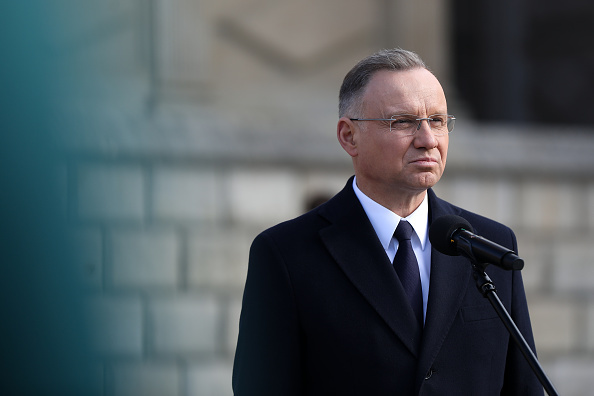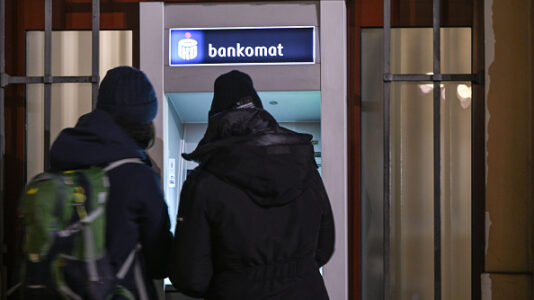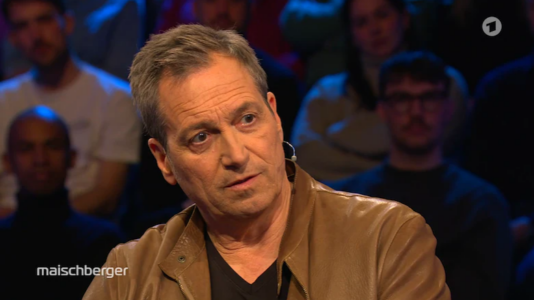On the 15th anniversary of the Smolensk air disaster, Polish President Andrzej Duda gave a speech honoring former president Lech Kaczyński and those who died with him that day, including his wife, president-in-exile Ryszard Kaczorowski, members of government, representatives of all political forces, social activists, members of the clergy, scholars, generals, and commanders of the Armed Forces.
“Dear compatriots, President Lech Kaczyński, for whom an important part of his public mission was to restore the truth about our history, gave his life to pay tribute to those whom the Soviets and communists tried to erase from national memory,” said President Duda in his message to Poles, covered by wPolityce.
The Smolensk subcommittee found that the crash of the Tupolew Tu-154M plane on April 10, 2010, was an assassination attempt on the life of Polish President Lech Kaczyński in which 95 other people died. The plane was packed full of VIPs traveling to commemorate the Katyn massacre committed by the Soviets in the 1940s.
Calling the crash a “great, unhealed wound in the hearts of the families, loved ones, and friends of the deceased,” Duda said, “the entire Republic of Poland suffered a huge loss.”
He also cited part of a speech Lech Kaczyński had written for the Katyn ceremonies: “On the path to reconciliation, partnership is needed, dialogue between equals, not imperial longings. […] The Katyn crime will forever remind us of the threat of enslavement and destruction of people and nations. Of the power of lies.”
The president then called Kaczyński “the president of the future” due to his “concern for the fate of future generations of Poles. A visionary who was able to recognize geopolitical challenges and threats.”
He also touched upon Russia’s already visible ambitions back then, stating, “Already in 2008, at a rally in besieged Tbilisi, (Kaczyński) prophetically warned the world about the resurgent Russian imperialism. He said then: ‘Today Georgia, tomorrow Ukraine, the day after tomorrow the Baltic states, and later maybe it will be time for my country, for Poland.’”
“Unfortunately, the dangers he warned about were ignored by many politicians in Poland and those who ruled in Western Europe. The policy of a naive reset with Russia prevailed,” Duda continued, adding, “Today, everyone knows that Lech Kaczyński was right.”
Stressing the need, now more than ever, to build a “strong Poland,” Duda called on leaders to “unite around the priorities of the Polish raison d’état, which President Lech Kaczyński left us in his political testament.”
He called on Poles to unite in strength against the forces that seek to divide. “I believe that the attempts to destroy that unity by the so-called industry of contempt will ultimately be covered by a veil of shame.”
President Duda also expressed outrage that no street in Warsaw is named after “the late Professor Lech Kaczyński – President of Poland and Mayor of the capital.”
Although the Mazovian Voivode had decided to rename a main avenue after Lech Kaczyński, this was shot down by the Warsaw City Council in 2018 and returned to its still current name of “Aleja Armii Ludowej” or “Avenue of the People’s Army.”
“The communist tradition was preserved, and the achievements of the president elected in democratic, free elections were ignored. The creators of the Warsaw Uprising Museum – one of the most important institutions for the identity of the capital. In this context, the word ‘shame’ can be used, but suffice it to say that from a human perspective it is simply dishonest,” Duda commented.
In his final comments on the Smolensk disaster, President Duda told Poles: “And yet, from this great loss, a community was born. In those memorable weeks, many people decided to get involved in public affairs. Grassroots social initiatives and platforms for cooperation for the common good were created. Such a Poland – ambitious, confident of its place in Europe and the world, aware of its history, strong in the solidarity of its citizens and building the power of its army – is the best response to contemporary threats and revived Russian imperialism. Only in this way will we fulfill the will of those murdered in Katyn and the will of those who died on April 10 in Smolensk.”
“Honor Their Memory! Katyn and the testament of those who died on April 10 in Smolensk. Honor Their Memory,” he said.






